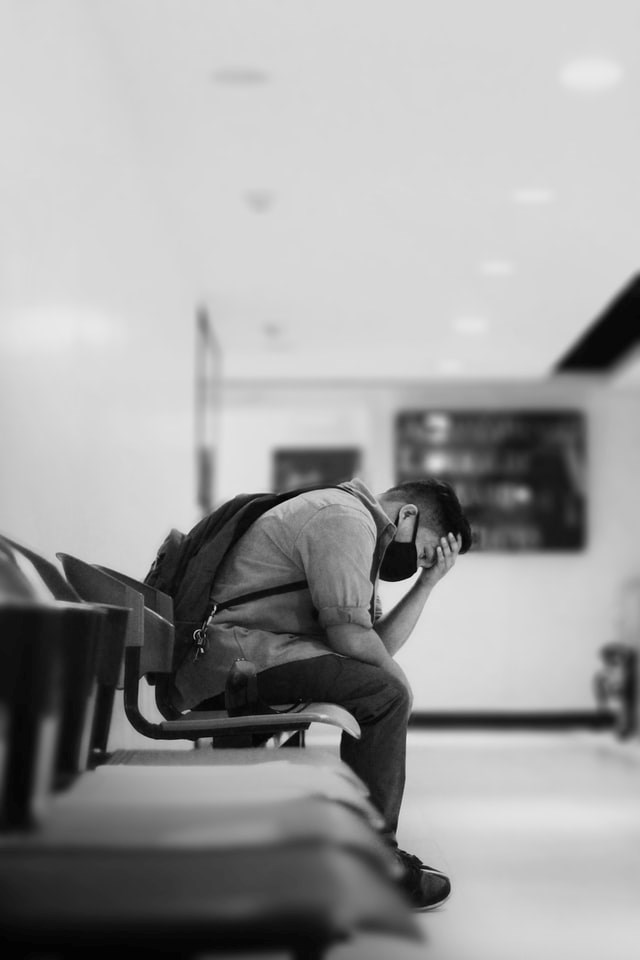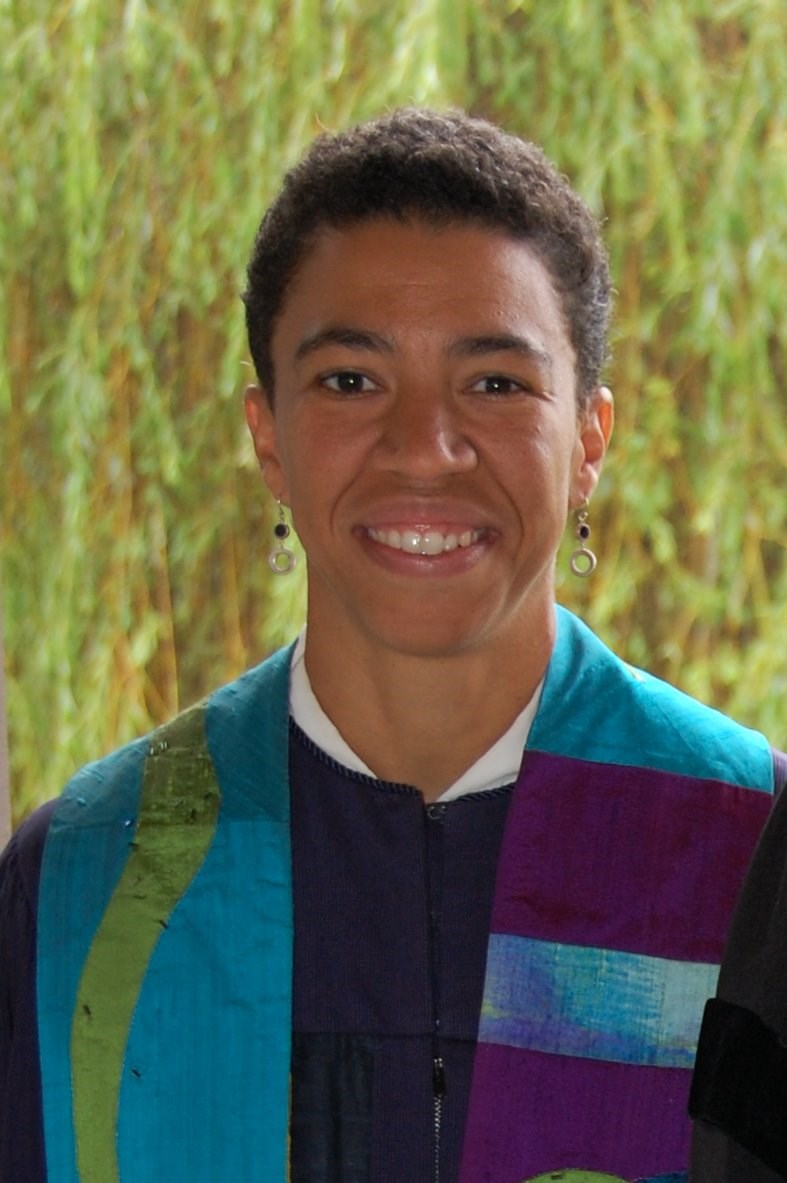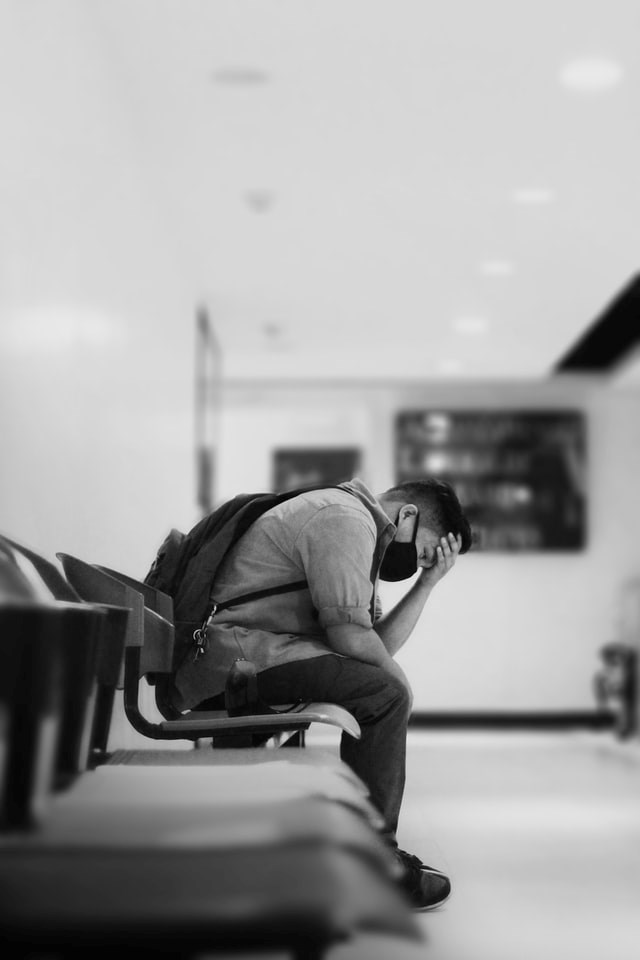Allow
By Danna Faulds
There is no controlling life.
Try corralling a lightning bolt,
containing a tornado. Dam a
stream and it will create a new
channel. Resist, and the tide
will sweep you off your feet.
Allow, and grace will carry
you to higher ground. The only
safety lies in letting it all in –
the wild and the weak; fear,
fantasies, failures and success.
When loss rips off the doors of
the heart, or sadness veils your
vision with despair, practice
becomes simply bearing the truth.
In the choice to let go of your
known way of being, the whole
world is revealed to your new eyes.
 After a recent service in which I spoke about the ways in which life unfolds—not of our will or choice, always, but continues to unspool nonetheless—a congregant sent me the poem above. It was a lovely encapsulation of my message. More than that, it is an apt description of this time. We have all likely been resisting—wishing away the pandemic doesn’t work, does it? We have experienced lots of emotional ups and downs over the past 13 months or so. And then I wonder, have we grieved?
After a recent service in which I spoke about the ways in which life unfolds—not of our will or choice, always, but continues to unspool nonetheless—a congregant sent me the poem above. It was a lovely encapsulation of my message. More than that, it is an apt description of this time. We have all likely been resisting—wishing away the pandemic doesn’t work, does it? We have experienced lots of emotional ups and downs over the past 13 months or so. And then I wonder, have we grieved?
When I think about a return to togetherness, one of the first things that occurs to me is the emotional toll this time has taken on all of us. While some among us have appreciated the way the pandemic has opened up more stillness and time for reflection, others have felt keenly and deeply a sense of loss. The losses have not been the same for each of us, for sure. Some have lost loved ones or jobs or housing. Others have lost plans and a sense of control, and an ability to visit with loved ones. All of this is loss. All of this is reason for grief. As a culture, we don’t do grief well. We don’t give it the space it needs, demands, or deserves. We don’t truly or deeply honour what it has to teach, or how much it is a defining feature of being human. At memorial services, I often say, “To live is to love is to lose.” Throughout our lifetimes we become attached to people and to ways of being; we have lost lots in that regard this year. We have been disconnected, isolated, and at loose ends about how to maintain our ties across distance. We have been angry and sad with fewer outlets for all of those intense emotions.
A word that has come to mind a great deal lately in lamentation. There is a book of the Hebrew Bible—Lamentations—and I think that thousands of years ago when that text was transcribed they were better at not just grieving but lamenting. A dictionary definition of lamentation is, “the passionate expression of grief or sorrow; weeping.” As the Covid death toll has increased steadily and as I hear loved ones share stories of just how heavy and how hard a time this has been, the more I become convinced that we need a time of lamentation. We need both personal and collective lamentation. All of this loss, and nowhere to go with it. The numbers of those who have died is staggering, and yet it has mostly remained a number—we have had no place to go, no way to be together to mourn.
A service of lamentation may be one of the first ones I offer when the congregation I serve can be together in person again. I will encourage weeping. I will encourage us to share the stories of all we have lost, all it has meant to us, and what it means for our lives going forward. I suspect that if we allow ourselves to vulnerably and openly lament we will be better for it. More compassionate toward one another’s hearts, and more open to the world. What will you do? Where will you go when you want and need to lament?
 Rev. Shana Lynngood is co-minister of First Unitarian Church of Victoria.
Rev. Shana Lynngood is co-minister of First Unitarian Church of Victoria.
You can read more articles on our interfaith blog, Spiritually Speaking, HERE
Photo by christopher catbagan on Unsplash



